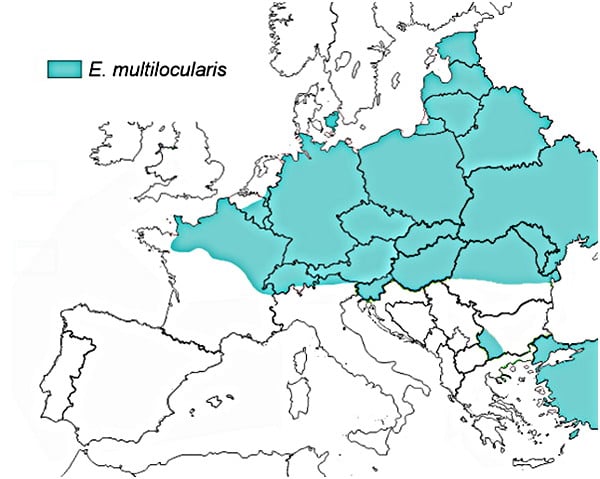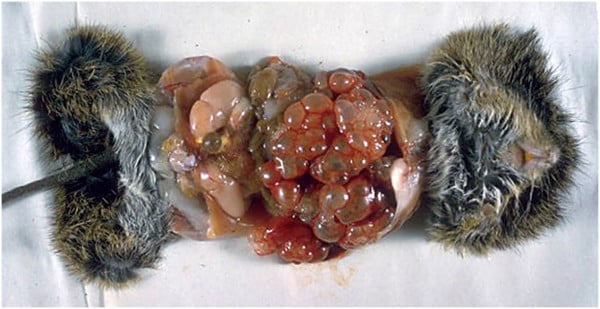
Echinococcus granulosus
What is an echinococcus?
Geographical distribution of E. multilocularis in Europe
Precautions to take
- Do not eat wild berries and vegetables without first washing them, and preferably eat them cooked. Note: freezing at -20°C is not enough to destroy echinococcus eggs.
- Wash your hands thoroughly after gardening or petting your dog.
- Do not handle fox corpses.
- Do not feed dogs raw organ meats.
- Deworm dogs exposed to the parasite every 4 to 6 weeks with a product effective against echinococcus
- Deworm dogs that have traveled to high-risk areas during the vacations.
Echinococcal cysts in the liver and lung of a sheep.
Tous les vermifuges ne sont pas efficaces face aux échinocoques
For more information
You can visit the ESCCAP website


